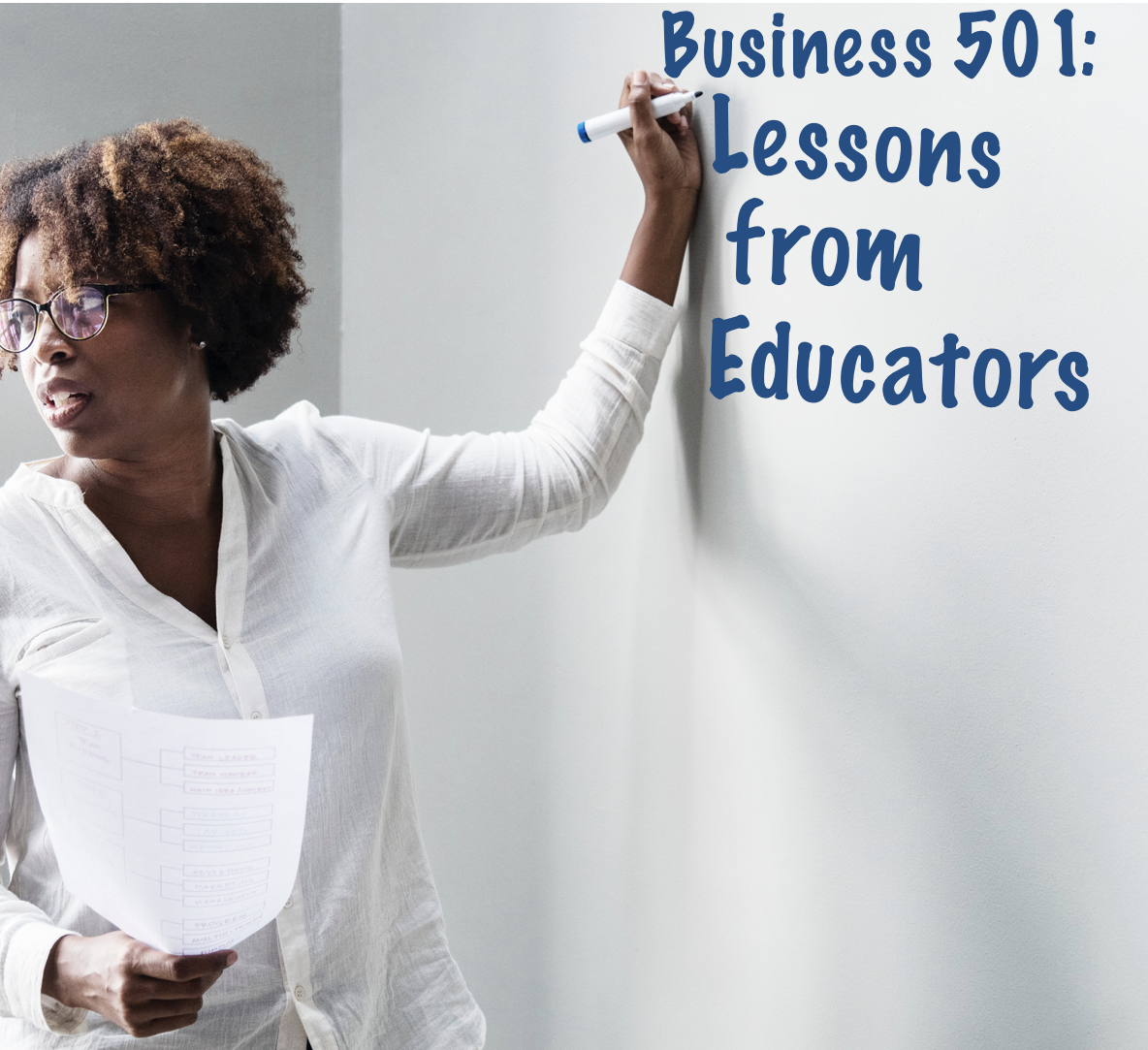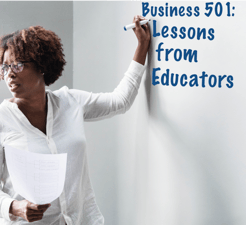
What Business Executives Can Learn from School Leaders
 The relationship between educators and business leaders will grow even stronger when there is mutual respect for the expertise that each brings to the table.
The relationship between educators and business leaders will grow even stronger when there is mutual respect for the expertise that each brings to the table.
Advice from business executives to school leaders is pervasive, driven by the assumption that schools wouldn't be so "abysmal" if only administrators would learn to apply the habits and techniques that are so common in the "real world."
The comments from board members, parents, or others usually sound like this :
- "Get back to the basics!"
- "Innovate more effectively!"
- "Hire better!"
- "Make decisions faster!"
- "Don't take so many days off!" (see Ashton Kutcher at ASCD Empower19)
This isn't a one way street, however! What can business leaders learn from school leaders? Quite a bit, actually!
From my experience as a leader in both education and business, I've learned some very important lessons from my work in school administration that have helped me to be a more effective entrepreneur and in business development.
While this list continues to grow weekly, below are three examples of leadership strategy that business executives can learn from school leaders that provide a good starting point.
#1: How to Turn Expertise into Curriculum
Every business is looking for ways to expand their influence through content marketing, where highly valuable materials and tools are shared via online access to attract and engage their target market. This is a critical business development strategy for getting the attention of key decision makers because the market is overcrowded with competitors and because people are distracted by so many different media resources.
Business leaders would be wise to tap into the expertise of educators in order to utilize modern approaches to curriculum design to build engagement internally (with employees, managers, etc.) and externally (with clients and communities). Understanding how people learn and how to craft instructional experiences that strengthen relationships offers a unique marketing advantage.
We've proven that such a platform of influence works through our own growth strategy, and we've shared this expertise with companies like 3M, Johnson Controls, and many others.
#2: How to Teach more Effectively
The most effective business leaders are also highly effective teachers. They build employee engagement by personally sharing wisdom, technical skills, business and relationship principles, and life lessons. Through this instructional interaction, their teams achieve at a higher level and achieve the sustainable advantages of a Learning Organization.
You may recall the research of Peter Senge that was originally shared in his seminal book, The Fifth Discipline. He proposed almost three decades ago that an organization’s ability to learn and renew itself is a sustainable competitive advantage. In an innovation economy like we have today, developing these disciplines is imperative in order to lead and manage change, to innovate and leverage new opportunities, and to create the best culture for employees to thrive. (This is critical for achieving school growth goals as well.)
Want to improve as a teacher leader? Learn from those who have mastered the craft as professional educators.
#3: How to Adapt to the Learning Styles of the Audience
Key to advancing your ability as an executive who teaches effectively is learning how to adapt to the learning styles of the audience. Whether one-on-one or in a group setting, personalizing the instructional experience will build engagement and mastery.
"Cognitive psychologists, teachers, and educational consultants have long recognized the value of such personalized instruction: It fosters not just competence or compliance but mastery of skills and independence of thought and action," writes Sydney Finkelstein in The Best Leaders Are Great Teachers (Harvard Business Review, Jan-Feb 2018)
Mastering the art and science of effective teaching requires leadership commitment, but the numerous benefits of such professional development are worth the investment.
Mutual respect offers fertile ground for greater collaboration and trust. That's why we encourage board members, parents, and others in the business community to value the strengths and professional skills of educators to enable a more productive dialogue for the improvement of schools and the pursuit of more profitable business opportunities.

.png?width=1000&height=199&name=SG-Logo3-Transparent-1000x199px%20(1).png)

.jpg?width=100&height=100&name=elementary%20student%20squeezing%20a%20stuffed%20animal%20while%20holding%20their%20breath%20(1).jpg)


